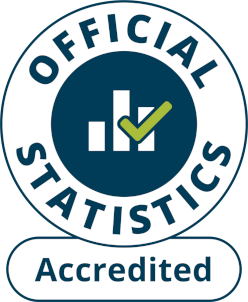Vocational and other qualifications quarterly: January to March 2019
Statistics on vocational and other qualifications (excluding GCSEs, GCEs and Diploma and its components).
Applies to England
Documents
Details
Main trends
The main trends for quarter 1 2019 are given below:
-
Just over 1.0 million certificates were awarded in 2019 Q1, an increase of 1.5% on the same quarter of 2018.
-
Due to the term ‘QCF’ being removed from a large number of qualification titles (after the removal of regulatory arrangements), the figures show a 93% decrease in these qualifications compared to Q1 2018. Functional Skills also saw a 14% decrease in certificates in the same time frame.
-
This was counterbalanced by an increase in the number of certificates awarded in several other categories, including English for Speakers of Other Languages, Other Life Skills, Performing Arts Graded Examinations, Vocationally-Related Qualifications, Other Vocational Qualifications, and Entry Level qualifications.
-
While overall certificates were up slightly from Q1 2018, the greater trend is an overall decline in certificates for vocational qualifications. This may be caused by a tightening in the availability of funding.
-
The decline in the number of certificates in Functional Skills is likely due to the changes in funding rules by the Education and Skills Funding Agency and revised guidance from DfE that post 16 students who have a grade D/grade 3 in English or mathematics must now be entered for GCSE resits in those subjects rather than Functional Skills.
-
The sector subject areas with notable increases in the number of certificates awarded were Education and Training, Health, Public Services and Care, and Construction, Planning and the Built Environment.
-
As in Q1 of 2018, the qualification with the highest number of certificates in Q1 2019 was QA Level 3 Award in Emergency First Aid at Work (RQF). The next highest numbers of certificates in Q1 2019 came from City & Guilds Level 3 Award in the Requirements for Electrical Installations BS 7671:2018 and TCL Entry Level Certificate in ESOL International - Speaking and Listening (Entry 3), neither of which existed in their current forms in Q1 2018.
-
In terms of awarding organisations, RAD saw a 96% increase in certificates awarded in Q1 2019 compared to Q1 2018, with QNUK, TQUK, Gateway Qualifications, and GQA also seeing marked increases in this time frame. The Learning Machine saw the largest proportional decrease in certificates from last quarter (at 437%), while IAO and BCS saw decreases of 71% and 63%, respectively. The large fall in certificates awarded by The Learning Machine corresponds to a similar drop in numbers in the ICT for Users subject category, which may explain some of the variation here.
Datasets
The dataset used to produce this release is available separately.
Statistics collection
All our published vocational and other qualifications publications are available at a single collection page.
User feedback
We welcome your feedback on our publications. Should you have any comments on this statistical release and how to improve it to meet your needs please contact us at [email protected].
